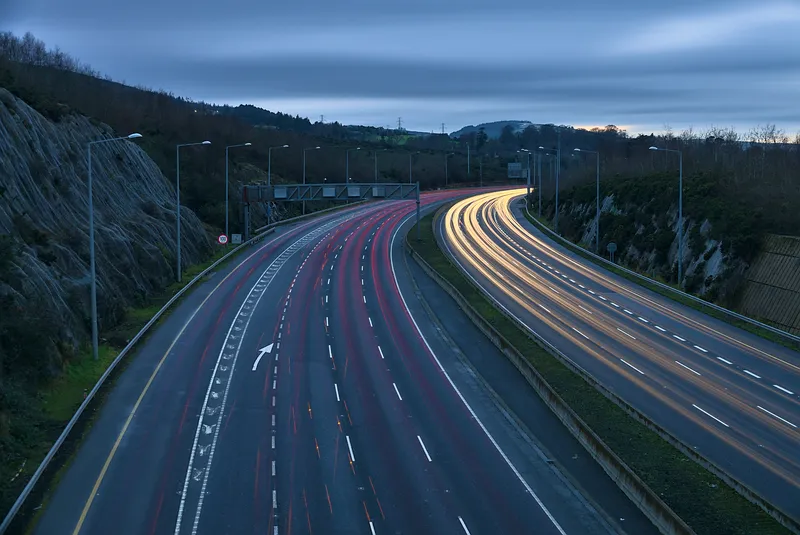The country’s expressways will be ready for use by self-driving cars by 2024 and over 100 projects have already been planned, authorities say.
Improving safety will be another focus for the smart road developments with the target of cutting casualties from crashes by 30%. Introducing smart expressways is also expected to lower maintenance needs and running costs by 30%, reducing noise pollution by 20% and emissions by 15%, while simultaneously lowering congestion by 30%.
New traffic control technology will be introduced to message self-driving vehicles when traffic control lights will change - while other systems will supply information for factors such as lane width. Around 5,500km of the busiest highways will be upgraded first as the programme is rolled out across the country. Detailed 3D mapping data will be collated as part of the programme, with local communications companies SK Telecom and KT already carrying out research work.
South Korea goes for smart road tech
Advanced technologies will be incorporated into future road developments in South Korea as part of a 10-year programme. The country will incorporate smart road technology into expressway routes, with charging systems for EVs as they are being driven - as well as tech to remove dust and other contaminants.
The country’s expressways will be ready for use by self-driving cars by 2024 and over 100 projects have already been planned, authorities say.
Improving safety will be another focus for the smart ro
October 31, 2019
Read time: 2 mins
Advanced technologies will be incorporated into future road developments in South Korea as part of a 10-year programme. The country will incorporate smart road technology into expressway routes, with charging systems for EVs as they are being driven - as well as tech to remove dust and other contaminants.










